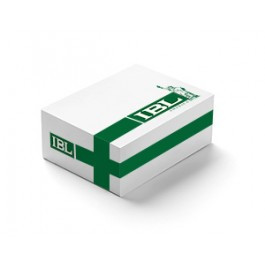Enzyme Immunoassay (ELISA) for the determination of Dopamine in plasma and urine. For research use only, not for use in diagnostic procedures.<br><br>
Dopamine is extracted by using a cis-diol-specific affinity gel, acylated and then converted enzymatically.<br><br>
The competitive ELISA kit uses the microtiter plate format. The antigen is bound to the solid phase of the microtiter plate. The derivatized standards, controls and samples and the solid phase bound analytes compete for a fixed number of antibody binding sites. After the system is in equilibrium, free antigen and free antigen-antibody complexes are removed by washing. The antibody bound to the solid phase is detected by an anti-rabbit IgG-peroxidase conjugate using TMB as a substrate. The reaction is monitored at 450nm.<br><br>
Quantification of unknown samples is achieved by comparing their absorbance with a reference curve prepared with known standard concentrations. For research use only, not for use in diagnostic procedures.
- Assay Description:
- 4 hours, 40 min. total incubation time (see protocol for specific assay procedure)
- Catalog number:
- IB89547R
- configuration:
- 96 Determinations, 12x8 removable strips
- controls:
- 2 controls, ready to use
- design:
- Competitive enzyme immunoassay (ELISA) technique
- FDA Status:
- For research use only, not for use in diagnostic procedures
- notes:
- The protocol for this product (see above) is intended to serve as an example only. Please refer to the Instructions For Use provided with the assay kit for precise details.
- MSDS:
- Please inquire
- Protocol:
- Sample types:
- Plasma and urine
- Sample volume:
- Urine: 10 μL / determination.
Plasma: 300 μL / determination. - standards:
- 6 standards, ready to use (additional A/B standard used when testing dopamine in plasma)
- Standard range:
- Urine: 0 / 10 - 2000 ng/mL
Plasma: 0 / 4.5 - 2000 ng/mL - storage:
- 2 - 8 °C
- sensitivity:
- Urine: 2.5 ng/mL
Plasma: 49.0 pg/mL - Species:
- Human







